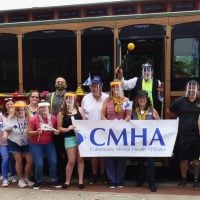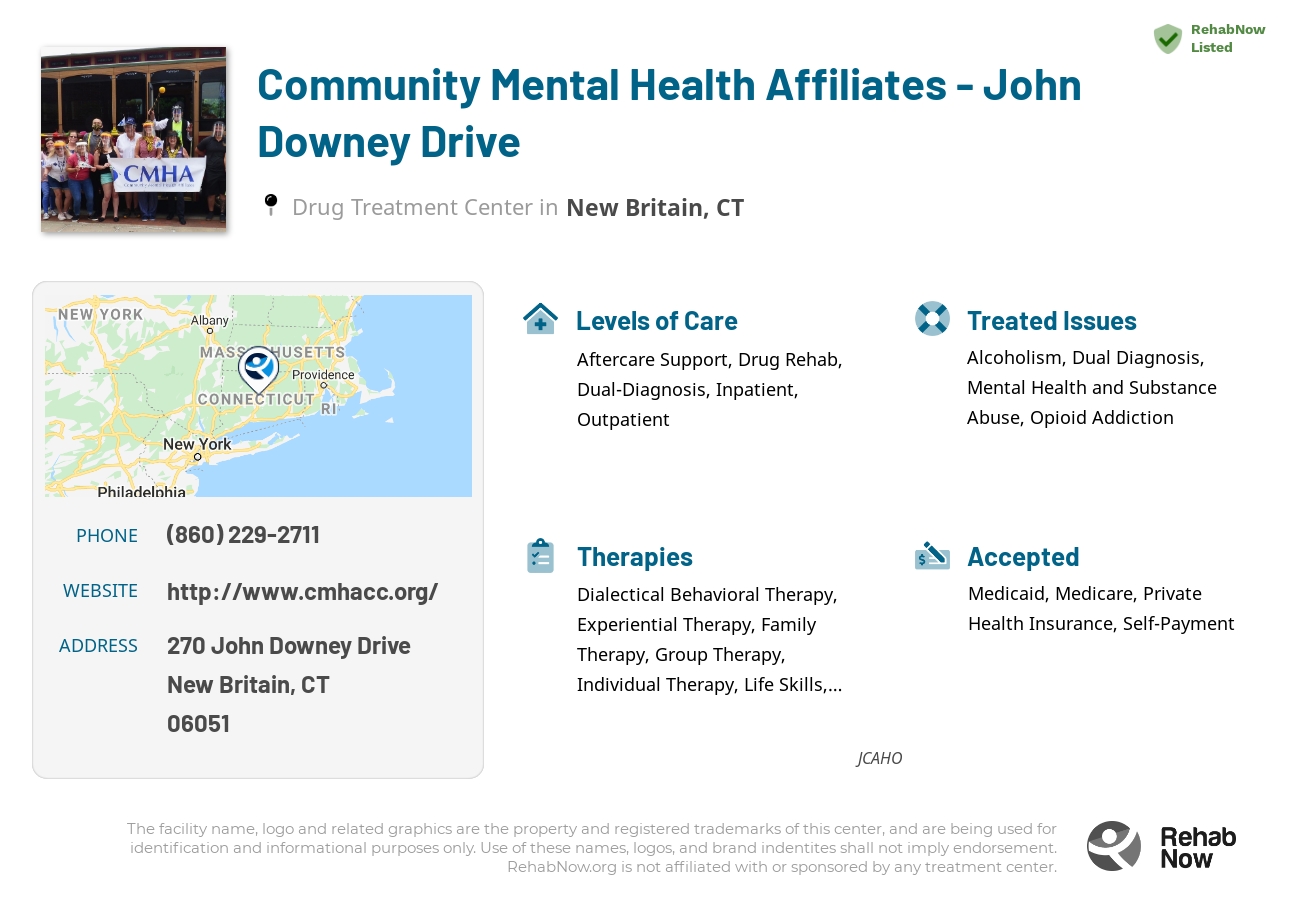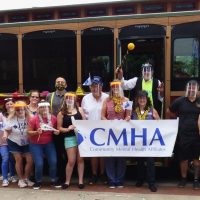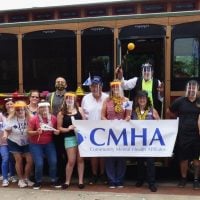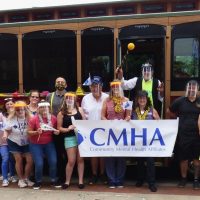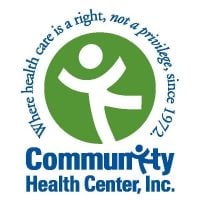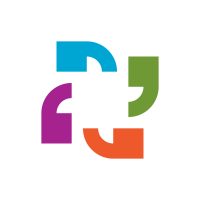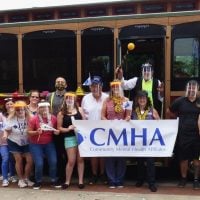Community Mental Health Affiliates - John Downey Drive
Drug Rehab Center in New Britain, Connecticut
Community Mental Health Affiliates - John Downey Drive provides addiction and mental health treatment to individuals and families through a range of evidence-based therapies and programs, including residential treatment, outpatient care, aftercare services and holistic healing treatments.
Multiple patients have reported Community Mental Health Affiliates - John Downey Drive as permanently closed.
Research other rehabs in New Britain, Connecticut, or get help finding an open facility.
About This Connecticut Facility
Community Mental Health Affiliates - John Downey Drive is a leading provider of quality addiction and mental health treatment in New Britain, Connecticut. Established in 1975, the John Downey Drive facility is dedicated to providing compassionate and comprehensive care to individuals and families suffering from addiction, mental health and behavioral disorders. Their team of caring and experienced professionals offer an array of evidence-based therapies and treatments tailored to the unique needs of each patient to help them manage their condition.
Community Mental Health Affiliates - John Downey Drive provides a range of addiction and substance abuse programs, including residential treatment, outpatient care and aftercare services. They also offer specialized programs for detoxification, co-occurring disorders and dual diagnosis. In addition, they provide psychotherapy, family counseling, physical and psychological assessments, medication management, and psychiatric services.
Community Mental Health Affiliates - John Downey Drive is accredited by The Joint Commission and licensed by the Connecticut Department of Mental Health and Addiction Services. Furthermore, they are a designated provider of the Youth and Family Services Bureau, and have been recognized as a National Council for Behavioral Health Accredited program. Additionally, their facility offers a variety of holistic healing treatments, such as yoga and mindfulness, to help patients manage their symptoms and promote overall wellness.
Genders
Ages
Modality
Additional
Accreditations

JCAHO
Conditions and Issues Treated
Opioid abuse has become a national epidemic in the last decade. The US has one of the world’s highest rates of opioid use and abuse, as well as opioid-related deaths. Opioids are classified as Schedule II-IV controlled substances in the US due to their high potential for abuse.
Oxycodone, hydrocodone, methadone, and fentanyl are the most common Opioids and are commonly prescribed to treat pain. Tolerance to opioids develops over time, making life difficult, if not impossible, without them. Opioid users often obtain the drugs illegally. They can be drug dealers, friends, or family members who do not have valid prescriptions.
The desire for a more intense high than prescription opioids can quickly lead to heroin use. Heroin users are more prone to illness and death due to the high risk of overdose.
Many opioid addicts who seek treatment believe that the only way to overcome their addiction is through medical detox and long-term drug addiction rehab. To help patients wean off their addiction and reduce the risk of overdose, medication-assisted therapy (MAT) involves prescribing a replacement opioid. Doctors use MAT in conjunction with other anti-craving medications to help patients maintain recovery. Due to the high risk of relapse, MAT is often combined with individual and group counseling and social support programs.
When addiction and psychiatric issues co-occur, the addict’s recovery is more successful when both conditions are treated. A dual diagnosis refers to a condition in which the patient is diagnosed with two health issues: addiction and bipolar disorder. The most common therapies are psychotherapy, behavioral therapy, spiritual counseling, 12-step programs, and medication management.
Levels of Care Offered at Community Mental Health Affiliates - John Downey Drive
This center offers a variety of custom treatment tailored to individual recovery. Currently available are Aftercare Support, Drug Rehab, Dual-Diagnosis, Inpatient, Outpatient, with additional therapies available as listed below.
Inpatient treatment centers offer a safe, secure, and often medically supervised environment for drug or alcohol-addicted individuals. Many of these facilities are equipped to provide detoxification, treatment for co-occurring mental health disorders, and aftercare programs. The patient typically spends 28 to 30 days at the facility and will receive extensive drug counseling.
An outpatient treatment program is set up to help with alcohol or drug addiction or a co-occurring disorder. The patient must attend the facility for their therapy and other programs but can return home each night.
The frequency of mandatory attendance decreases after much of Community Mental Health Affiliates - John Downey Drive‘s program is complete.
Outpatient treatment is a recovery approach that allows recovering addicts to live at home while getting rehab for addiction
An outpatient can include day treatments which include attending group sessions one hour per week. A person living in an outpatient environment may be allowed the opportunity to work full time if they choose to and continue studies without interruption from drugs/alcohol.
Outpatient treatment is an option for people who want to maintain their careers and families. Outpatients live at home but attend treatment such as individual counseling, group counseling, or twelve-step meetings during the day.
Aftercare support is vital to the success of someone in drug or alcohol treatment. It involves assisting with entering a sober living home, getting career counseling or educational assistance and even getting the individual lined up with programs like AA and NA. This support helps recovering addicts readjust to normal day-to-day activities and maintain sobriety.
When a person is in drug or alcohol treatment, they have to increase their focus on themselves. They need to learn how to recognize the triggers that cause them to relapse and learn the habits that would benefit them if they were to be sober. This is all part of the growth in recovery, and aftercare is essential to that process.
Therapies & Programs
At Community Mental Health Affiliates - John Downey Drive , to learn from past mistakes and improve one’s situation, the recovering person meets individually with a therapist. The counselor or therapist will address addiction causes, triggers, mental issues, dual diagnosis, and aftercare plans during this time. This is a very intense and challenging process. Some clients find it easier to open up to someone other than family or friends who understand their struggles with addiction.
Family therapy is a crucial part of drug treatment and getting sober. It is one of the most effective ways to help addicts stay on the path to long-term sobriety. An addict’s family can play a vital part in helping them to avoid relapse. They can spot the warning signs and help them get back on track.
In group therapy, recovering addicts meet with a therapist and other people in recovery. Some groups are closed, meaning only people who share the same addiction or problem can attend. Others are open to anyone who wants to stop using drugs or drinking alcohol. Group therapy sessions typically focus on one topic each week or month so that recovering addicts can discuss issues they face daily.
Trauma therapy allows people to face and learn from past traumas.
Many people suffer childhood traumas that lead to adult addiction. During treatment at Community Mental Health Affiliates - John Downey Drive [/type], you can move forward in your recovery and reclaim your sober future! Trauma is a common cause of psychological disorders like Addiction Disorder. It’s common in Addictive Disorders patients because traumatized people have strong emotions or thoughts that lead to addictive behaviors.
Dialectical Behavior Therapy (DBT) is a type of therapy created in the late 1980s and early 1990s. It was designed to help people with high rates of suicidal behavior.
The goal of DBT is to teach mindfulness, distress tolerance, emotion regulation, and interpersonal effectiveness to help people learn how to live a life that is no longer controlled by overwhelming emotions and urges.
DBT is beneficial in treating drug addiction because it helps patients understand and cope with their cravings for drugs or alcohol rather than turning to those substances as a way of coping.
Cognitive Behavioral Therapy (CBT) is based on the idea that how we feel, think and act all interact together. It helps people explore their thoughts for problems (or false beliefs) that influence their mood and actions. CBT is very goal-oriented, which means that the therapist and patient work together on a specific problem. In addition to helping a client focus on thoughts that can be changed, CBT also allows them to take an active role in their treatment. Our thoughts determine our feelings and behaviors; our feelings affect our thoughts, and our behaviors change our thoughts and feelings.
Drug and alcohol addiction can lead to a breakdown in life skills. Learning certain life skills can help those who are struggling with addiction. Life skills training at Community Mental Health Affiliates - John Downey Drive in New Britain, CT teaches patients skills such as time management, budgeting, and social abilities to improve their quality of life and prevent relapse.
An addict’s life skills are maladaptive, meaning they are counterproductive. An addict may have learned poor time management skills growing up, have a hard time budgeting money, or be socially awkward. An addict’s poor life skills can lead to relapse and the inability to achieve long-term sobriety. Life skills training teaches patients effective coping mechanisms, which can help them live a clean and sober life.
Nutrition therapy has been used to help drug addicts for decades. Many early reports on addiction treatment indicate that some patients recovered from the “satisfying power of food”. For years, this phenomenon has been utilized as a treatment modality in eating disorders for adults, adolescents, and children.
Specific nutrients have been identified that influence neurotransmitters associated with reward pathways of the brain. Studies have shown that carbohydrate loading with complex carbohydrates to elevate serotonin levels was effective in treating bulimia nervosa. This approach prompted researchers to explore the use of this type of nutritional intervention in other disorders.
The goal of nicotine replacement therapy is to provide a safe alternative for people trying to quit smoking. It does this by giving small doses of nicotine that help manage cravings while breaking habits associated with cigarettes.
Nicotine Replacement Therapy (NRTC) uses products like skin patches and gum that deliver low-dose nicotine, which prevents cravings in those quitting. This makes it easier for them to make a gradual transition from smoker to non-smoker.
Patient Experience
Experiential Therapy at Community Mental Health Affiliates - John Downey Drive
Experiential Therapy is a different way of thinking about addiction treatment. It uses physical activities to help work through troubling emotions, memories, and trauma that are sources of psychological issues like addiction.
Experiential Therapy can be an effective option for those who have struggled with past traumas or challenges associated with life decisions such as drug use. The non-traditional approach helps people deal more effectively with these struggles. It also allows them to gain new perspectives on their behavior patterns by recreating experiences in healthy ways rather than continuing old habits that may no longer serve them.
Payment Options Accepted
For specific insurance or payment methods please contact us.
Is your insurance accepted?
Ask an expert, call (888) 674-0062
Community Mental Health Affiliates Associated Centers
Discover treatment facilities under the same provider.
- Community Mental Health Affiliates - Child and Family Counseling Center - Torrington in Torrington, CT
- Community Mental Health Affiliates - Hart Street in New Britain, CT
- Community Mental Health Affiliates - Child and Family Counseling Center - Whiting Street in New Britain, CT
- Community Mental Health Affiliates - Child and Family Counseling Center - Waterbury in Waterbury, CT
- Community Mental Health Affiliates - Transitional Youth Program in New Britain, CT
Learn More About Community Mental Health Affiliates Centers
Additional Details
Specifics, location, and helpful extra information.
New Britain, Connecticut 6051 Phone Number(860) 229-2711 Meta DetailsUpdated November 25, 2023
Staff Verified
Patient Reviews
There are no reviews yet. Be the first one to write one.
New Britain, Connecticut Addiction Information
Connecticut has a higher rate of substance abuse and addiction than the national average. The state ranks in the top 10 in the country for illicit drug dependence among those ages 18 to 25. In 2010, there were 9,211 people admitted to an alcohol treatment facility for alcohol abuse combined with a secondary drug. Connecticut ranked fifth in the United States of America for the number of fatalities involving drunk driving in 2014.
The drug addiction problem in New Britain, Connecticut, is not as severe as in other parts of the country. However, there are still many people who are addicted to drugs and alcohol. In 2016, 4.2% of people aged 18 or older in New Britain, Connecticut needed treatment for an illicit drug use problem. The treatment in New Britain, CT, depends on the rehabilitation center that someone chooses.
Treatment in Nearby Cities
- Lebanon, CT (28.1 mi.)
- Essex, CT (28.1 mi.)
- New Haven, CT (26.0 mi.)
- Stratford, CT (38.4 mi.)
- Wallingford, CT (14.6 mi.)
Centers near Community Mental Health Affiliates - John Downey Drive
The facility name, logo and brand are the property and registered trademarks of Community Mental Health Affiliates - John Downey Drive, and are being used for identification and informational purposes only. Use of these names, logos and brands shall not imply endorsement. RehabNow.org is not affiliated with or sponsored by Community Mental Health Affiliates - John Downey Drive.
